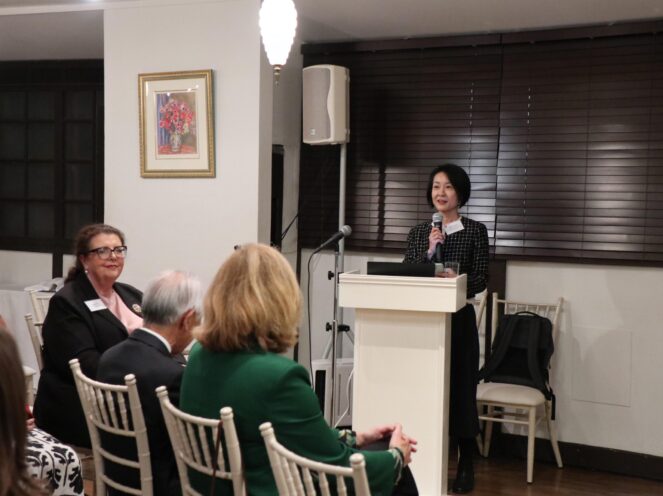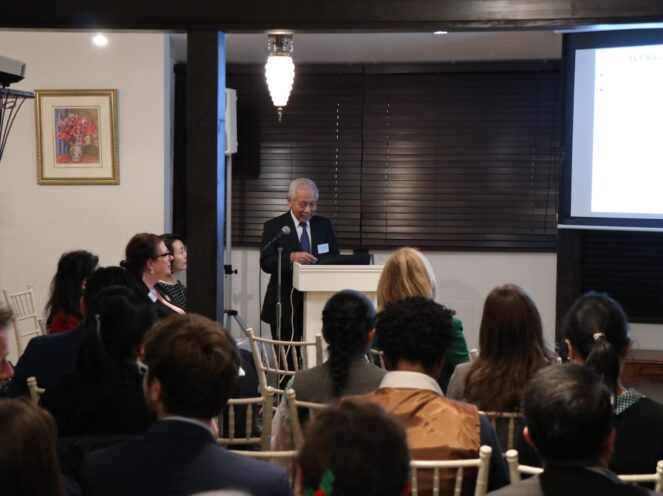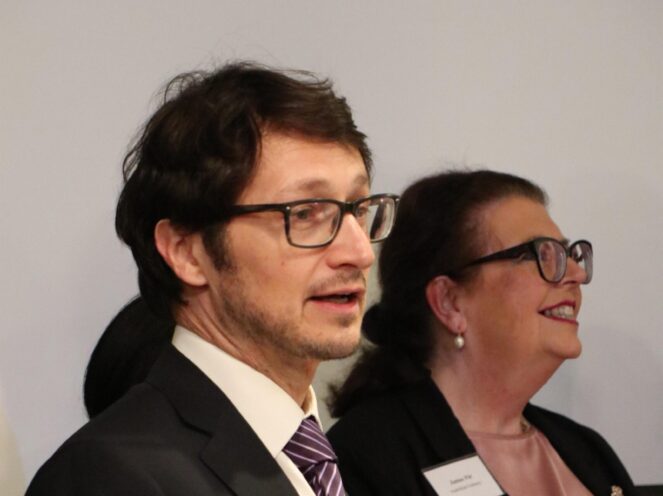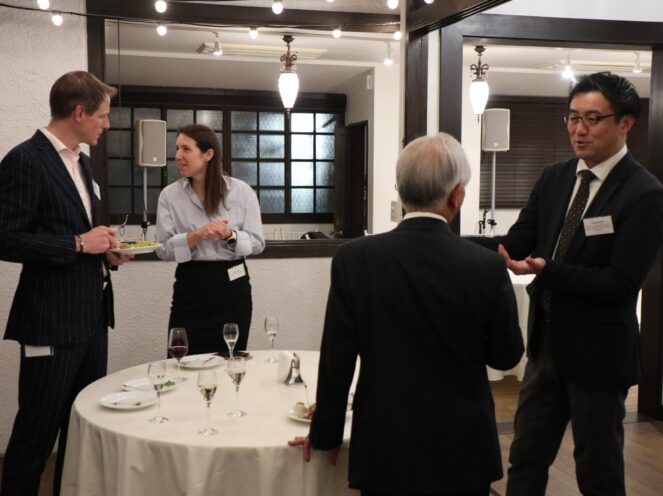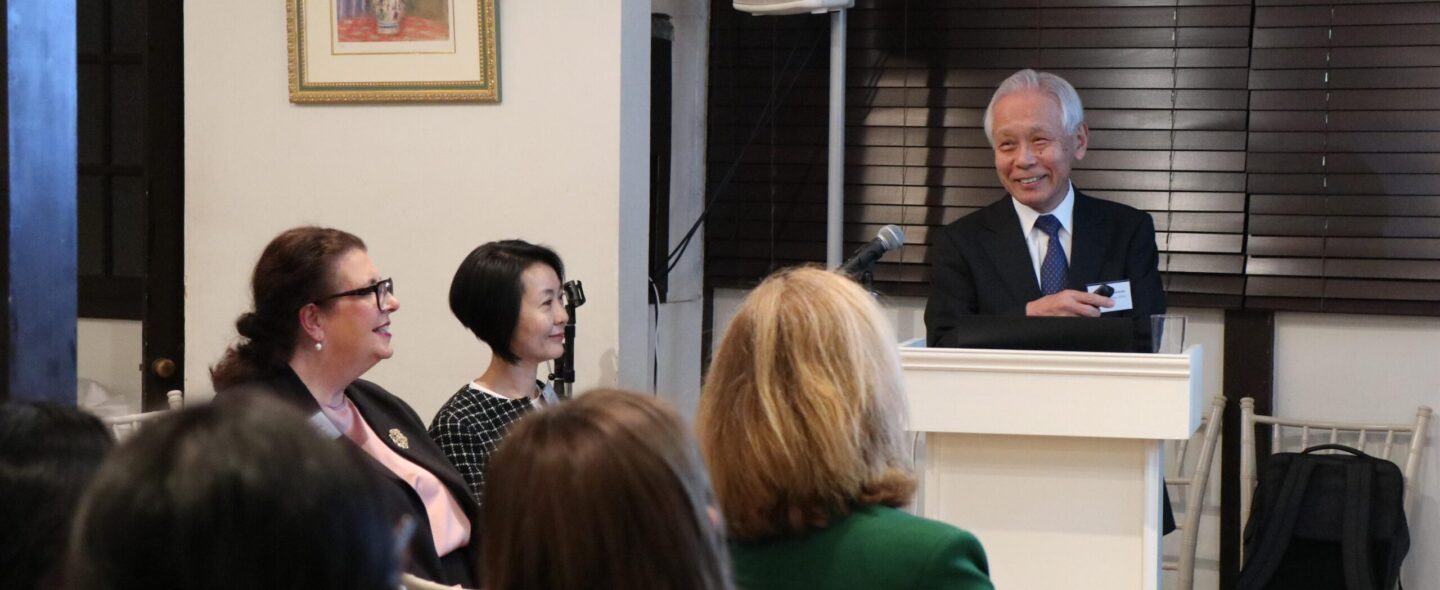
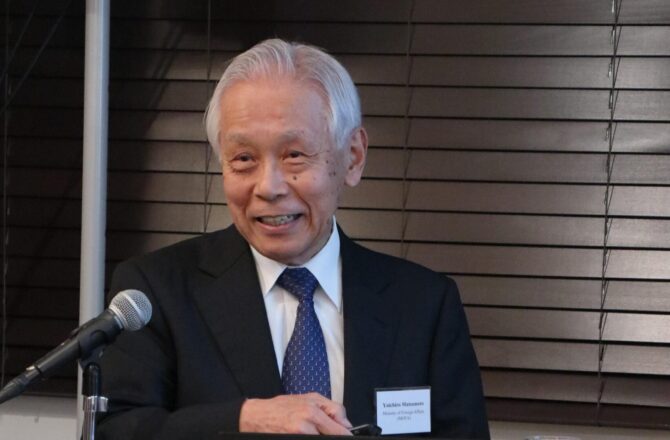
Prof. Dr. Yoichiro Matsumoto
S&T Advisor to Japan's Minister for Foreign Affairs
The evening started with Prof. Matsumoto’s presentation, offering an overview of the role of S&T Advisors and their contributions to Japan’s science diplomacy. He introduced the 22-member advisory board, which represents a wide range of disciplines, and outlined their responsibilities, including policy development, enhancing science and technology innovation (STI) networks globally, supporting public relations efforts, and conducting seminars to bolster S&T literacy among MOFA officials.
Prof. Matsumoto traced the evolution of Japan’s Science, Technology, and Innovation Policy over the past three decades, emphasizing its latest vision, Society 5.0. The plan is built on three key pillars: innovation capability, research excellence, and education and human resource development.
In light of recent political shifts under the new Cabinet led by Prime Minister Shigeru Ishiba, Prof. Matsumoto provided updates on Japan’s current STI policy priorities. These include strategic fields such as artificial intelligence, semiconductors, quantum technology, biotechnology, space exploration, fusion energy, and green transformation. In his speech at the STS forum 2024, the Prime Minister stressed the importance and affirmed his wish to accelerate international exchange and circulation of research talents, underlining that they are the key to developing science and technology that will shape future society.
Prof. Matsumoto also addressed the 2023 revision of the Development Cooperation Charter, which aims to enhance co-creation across private and public sectors through more strategic and proactive partnerships. Additional ongoing initiatives, such as METI’s Circular Economy Vision 2020 and disaster management research, were also highlighted as part of Japan’s comprehensive approach to harnessing science and technology for the benefit of society.
The critical role of international networks in advancing Japan’s S&T diplomacy was also underlined. Prof. Matsumoto referenced Japan’s 33 bilateral science and technology cooperation agreements and international programs like SICORP, ASPIRE, and NEXUS. He highlighted the significance of multilateral dialogue platforms, such as the Science and Technology in Society (STS) Forum held in Kyoto last October, which brought together about 1,400 participants from over 80 countries. In closing, he encouraged embassies and diplomatic missions to act as hubs, fostering connections between Japanese and their home countries’ STI communities.
The briefing concluded with a lively Q&A session, where audience members raised questions on topics ranging from collaboration with emerging countries to MOFA’s involvement in the upcoming Expo 2025.
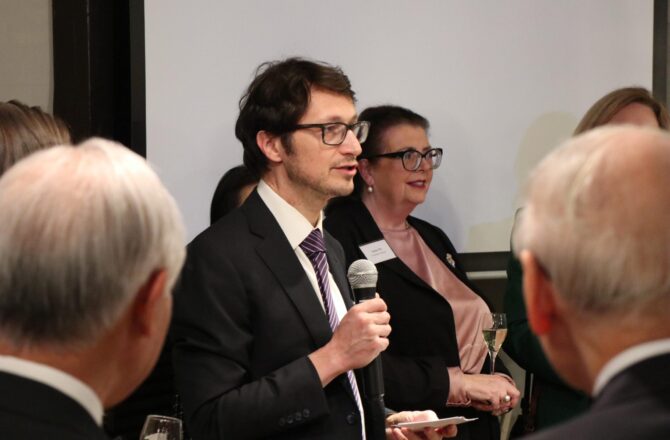
Mr. David Braun
Deputy Head of Mission
Embassy of Switzerland
Following the presentation, Mr. David Braun, Deputy Head of Mission at the Embassy of Switzerland, proposed a toast to officially open the year-end gathering. In his remarks, Mr. Braun expressed gratitude for Switzerland’s role as co-chair of the S&TDC, describing the platform as an excellent means to foster dialogue among diplomatic missions, Japanese government representatives, academia, and private sector leaders. He also highlighted Switzerland’s global contributions to science diplomacy, mentioning the Geneva Science and Diplomacy Anticipator (GESDA), which will be featured at the Swiss Pavilion during Expo 2025.
The event brought together a multicultural audience, including representatives from over 15 diplomatic missions and high-ranking officials from Japan’s Ministry of Foreign Affairs (MOFA), the Ministry of Education, Culture, Sports, Science, and Technology (MEXT), and prominent research institutions such as JST, AMED, JSPS, and RIKEN.
This gathering not only celebrated the accomplishments of the S&TDC in 2024 but also reinforced the importance of international collaboration in shaping a science-driven future.
Background
The S&TDC is an association comprising members from over 80 diplomatic missions and affiliated organizations in Tokyo. It provides a platform for interaction between diplomats and leaders in government, academia, and the private sector, focusing on science, technology, education, and innovation. The embassies of Australia, Norway and Switzerland currently co-chair the S&TDC.
